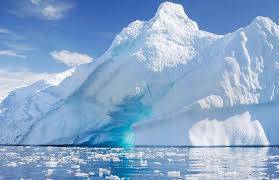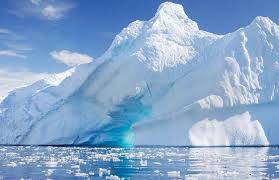A near-record heat wave has struck the South Pole, with temperatures continuing to rise to 10 degrees Celsius above their normal average over the past month, according to a report by "The Guardian." The report explained that while temperatures remain below freezing in the dark-covered region during this time of year, temperatures reached 28 degrees higher than expected on some days.
Michael Dukes, a climate scientist at the weather company MetDesk, told the British newspaper that the high daily temperatures were surprising, but the average rise over the month was the most significant. He also stated, "Climate models have long predicted that the most prominent impacts related to climate change caused by global warming would appear in polar regions."
Dukes warned that the increase in temperature during the current Antarctic winter, continuing into summer, will lead to the collapse and melting of ice sheets. A research paper published last April in the journal "Climate" highlighted the dangers of record high temperatures in the South Pole, which is considered the coldest area in the world.
Will Hobbs from the University of Tasmania in Australia led a team of scientists investigating recent changes in sea ice cover in Antarctica, concluding that there is a "pivotal and sudden shift" in the continent's climate, which could have ramifications for the ecosystems of the South Pole and the global climate system.
Hobbs noted that "the severe decline in ice levels in the South Pole has prompted researchers to discuss a shift in the Southern Ocean system, and we found numerous pieces of evidence supporting a transition to a new sea ice state." Researchers warned that the consequences could be "devastating" if the ice completely melts in Antarctica, raising global sea levels by 60 meters, which means that waters would inundate islands and coastal areas where many of the world's population currently lives.




